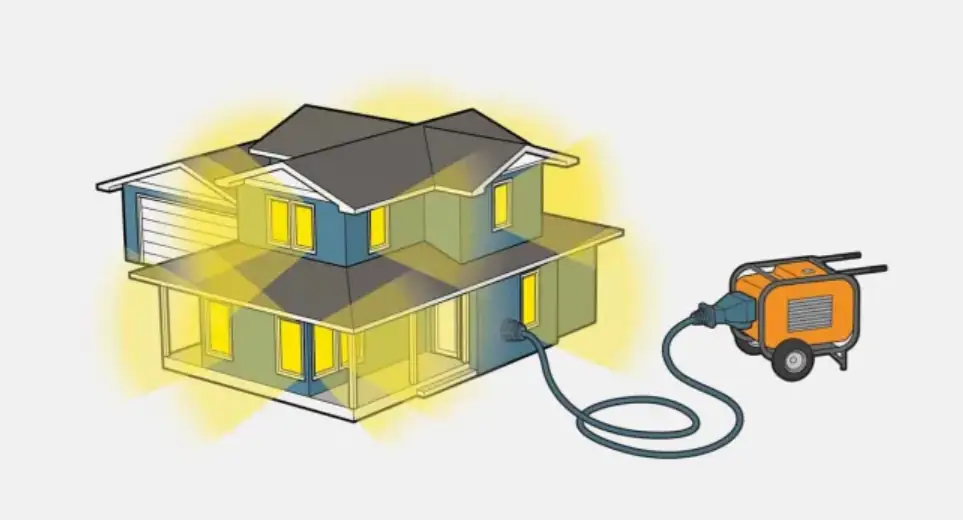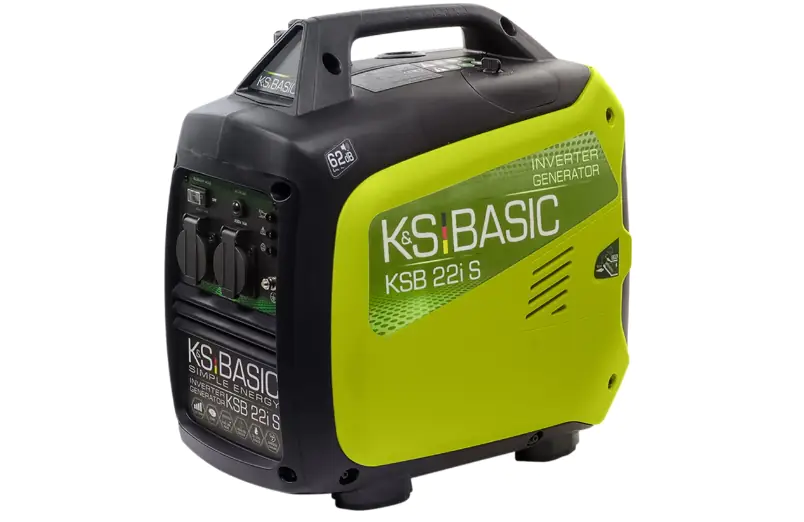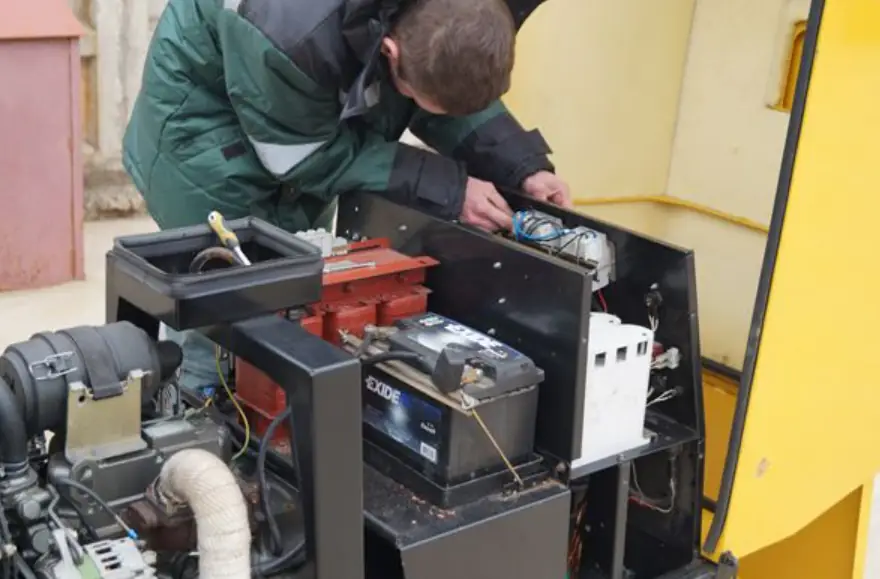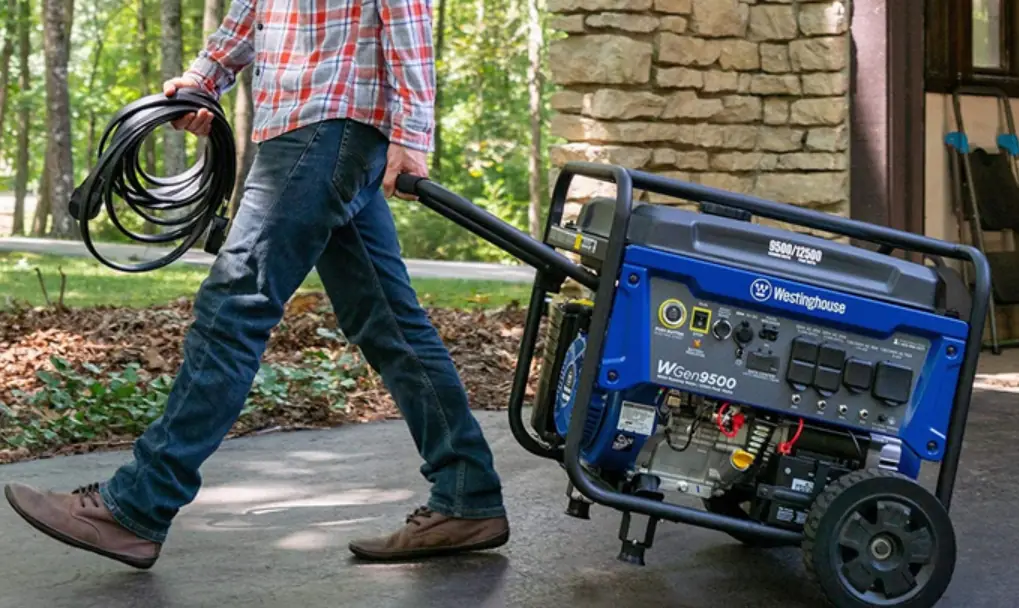© ROOT-NATION.com - Use of content is permitted with a backlink.
Due to frequent power outages in Ukraine in recent years, the demand for generators and backup power systems has significantly increased. Generators are indeed a great way to provide power during outages and supply electricity to places where it’s otherwise unavailable. The question is, what size and type of generator do you need?

Depending on the size of the generator you need, you might choose between a traditional portable generator and an inverter generator, which uses electronics to regulate the engine speed for more efficient power delivery. Inverter generators are more expensive than traditional ones with the same power output, but they offer clear advantages. This article will help you understand the differences.
Read also: APR-3000 ONE Vaporizer: How Ukrainian Inventors Solved the Main Problem of Air Conditioners
Power output
The first thing to consider when choosing a generator is the power output. Add up the wattage of everything you want to power with the generator, whether during a power outage or in a place with limited or no electricity. This might include lights, a refrigerator, a laptop charger, a smartphone charger, a coffee maker, a toaster, a washing machine, and so on.

This calculation will give you a rough idea of the generator size you need. Keep in mind that some appliances, like air conditioners and refrigerators, consume significantly more power. You should also account for power surges to get the most accurate estimate.
So, what power rating do you need for your generator? Here’s how to determine the final required capacity:
Add up the wattage of all the individual devices you want to run simultaneously (multiply by 3 if the device has an asynchronous motor) + 20% unused capacity = the minimum generator power you need.
For example, to run a 250W multicooker and a 650W handheld drill simultaneously, the calculation would be as follows:
650 W (drill) × 3 (starting power) = 1950 W
1950 W (total power of drill) + 250 W (multicooker) = 2200 W.
2200 W + 20% = 2640 W (total power required).

When choosing a generator, regardless of the type, you should understand a few important characteristics. These are starting power and running power. Starting power is the amount of power the generator can provide for a few seconds to start a motor. It is sometimes referred to as surge power. Running power is the amount of power the generator can provide continuously. It is also called continuous power.
Read also: What is Spatial Audio, How Does It Work, and How to Use It
Types of generators according to size
The main types of generators include large standby generators designed to power an entire home during an emergency and smaller portable generators that can be used for small homes, RVs, or job sites. These typically run on propane or gasoline. There is also another category of products known as solar or “fuel-free” generators, which are essentially compact battery packs that can be connected to solar panels. However, we’ll cover those in the next guide.
Portable generator
As the name suggests, a portable generator is one that can be easily moved. These generators often come with wheels, allowing for easy transportation and the ability to provide electricity anywhere.

Smaller models may even be handheld rather than on wheels, making them even more mobile. Portable generators typically run on gasoline and are generally more affordable than standby generators. With such a device, you can power a laptop (200W), up to 5 light fixtures (250W), a smartphone charger (20W), a home security system (100W), and possibly a TV (100-150W). It’s worth noting that these calculations are very approximate and depend on your devices.
Inverter generator
An inverter generator is similar to a portable generator in that it is smaller and easier to transport. However, inverter generators are typically even lighter than standard portable generators. They also operate more quietly, which can make them suitable for a wider range of applications, including camping and other activities.

They also have a built-in inverter, which provides alternating current suitable for household appliances. Although most noisy open-frame portable generators can also produce AC power, so it’s a bit of a misnomer. When purchasing an inverter generator, you’re paying a little extra for a quieter and more compact device. In addition to the devices mentioned above, with an inverter generator, you can also connect a refrigerator (700W), an air conditioner (up to 1000W), and one of the following: toaster (1200W), hair dryer (1200W), washing machine (1200W), heater (1500W), or coffee maker (1000W).
Large inverter generator
Large inverter generators with a capacity of up to 7500W can produce enough power to run large household appliances without any issues. They also operate quietly and are fuel-efficient, providing stable power for more sensitive electronics. Keep in mind that large inverters run on stabilized gasoline rather than natural gas or propane.

Large inverter generators are best suited for homes where power outages are frequent and/or prolonged, thanks to their reliability and ability to power essential appliances. With such a device, you can have a running refrigerator (700W), laptop (200W), 5 to 10 light fixtures (250W each), smartphone charger (20W), home security system (100W), TV (100-150W), air conditioner (up to 1000W), plus a well pump (1250W), sump pump (900W), gas or propane furnace (800W), or one of the following: electric stove (2000W), dishwasher (1500W).
Standby generator
A standby generator is a more permanent solution than a portable generator. It is larger, considerably more expensive, and is installed permanently in your home or business. When the power goes out, a standby generator automatically turns on. Instead of gasoline, standby generators are often fueled by propane and can also run on natural gas.

Standby generators eliminate many safety concerns associated with portable generators. And while they are the most expensive option, it can be a worthwhile investment if safety and a fully functioning home are your priorities.
Solar generator
Solar generators operate on a different principle. They are not engines that convert fuel into electricity; rather, they are portable battery packs that can be charged using portable solar panels (or simply by plugging them into an outlet). Since you can only charge them from the sun, you don’t have to worry about running out of fuel.
Rechargeable batteries for the home
Home batteries serve as an alternative to generators. These are electrical batteries, so they do not use gasoline or exhaust gas. They are installed directly on your home (either inside or outside) and store energy that your home can use during power outages. When grid disruptions end, the battery receives power from the grid to recharge. Paired with solar panels and an appropriate inverter, they can charge for use during extended outages.
Read also: What is a Security Patch and Why Is It So Important?
What to consider when choosing home generators
When purchasing a generator, there are many factors to consider. Below, we’ll discuss some of the most important aspects that will help you make a decision. One of the most crucial considerations when choosing a generator is the power you need. But we’ve already covered that above. I’ll just note that you shouldn’t forget about non-electric alternatives, such as a propane stove or a wood-burning fireplace.
General use
It’s not just about the power you need from the generator, but also about what you’ll be using it for. Choosing a generator to power your home during a power outage is vastly different from choosing one for a camping trip. Remember that standby generators are installed permanently in your home and provide backup power during outages. On the other hand, a portable generator can be taken with you on the go. For even greater mobility, you may opt for an inverter generator, which is lighter and quieter, or a solar generator.
Fuel source
There are typically three different ways to fuel a generator. The choice will depend on the type of generator you’re selecting and the specific model. First, gasoline is most commonly used to fuel portable generators. Propane can be used for both standby and portable generators. Finally, natural gas can be used for standby generators, but it’s not available for portable generators.

New backup and portable power sources may not need fuel at all. Home backup batteries and solar generators simply store electricity for later use.
Budget
The choice of generator also depends on your budget. Remember that standby generators are more expensive, while portable generators are generally more affordable.

Other characteristics
Before choosing the right model, think about which features are most important to you and which ones you can do without. Here are a few features to consider in generators:
- Carbon Monoxide (CO) Auto Shutdown: In generators that run on fossil fuels, automatic CO shutdown can turn off the engine if a dangerous level of carbon monoxide is detected.
- Electric Starter: Instead of a manual starter, an electric starter simply requires the press of a button to start the generator.
- Automatic Transfer Switch (ATS): If your generator is intended to provide power to your home during power outages, you may need an automatic transfer switch.
- Fuel Level Indicator: If your generator is equipped with a fuel level indicator, you can easily determine how much gasoline or propane is left and know when it’s time to refuel.
- Number of Outlets: Having multiple outlets on your portable generator allows you to use more than one device simultaneously.
- Low Oil Shutdown: This feature protects your generator from damage by automatically shutting it off if the oil level drops below a certain level.
Read also: Top 8 Military Technologies of the Future to Pay Attention to Today
Generator service
Regardless of which generator you choose, it’s important to regularly maintain it to ensure it operates well and safely when you need it. First and foremost, it’s crucial to check and change the oil in the generator. It’s recommended to check its level before each use and change it roughly every 100 hours of operation (although for a new generator, this should be done sooner). During the oil check, take the time to also inspect the filters and spark plug to ensure they are in good condition.

Additionally, don’t let the generator sit idle for too long. Running the generator helps burn off moisture and charge the battery. If you don’t plan to use it for more than a few weeks, it should be run dry to avoid fuel flooding the lines. Finally, make sure you store the generator properly to protect it. Of course, you shouldn’t store the generator outdoors.
Read also: Main Differences Between LED, OLED, and QLED in TVs
Summary
There might be a temptation to skimp on the size of the generator, especially if it helps you save a couple of thousand dollars. However, choosing a generator that is too small for your needs is a path to disaster. Not only can you damage the appliances and devices powered by the generator, but you can also damage the generator itself.

Here are a few more advantages of choosing a powerful generator over a weak one: increased generator lifespan, stable performance, limited frequency of power overload, reduced frequency of unexpected system failures, decreased likelihood of device damage, improved safety for occupants or staff, decreased risk of overheating and electrical fires, reduced frequency and cost of maintenance, and enhanced simplicity and speed of maintenance.
Lastly, I strongly recommend seeking consultation from a certified electrician or specialist before purchasing a generator. Sometimes, a generator alone may not always be the right solution; a significantly more effective solution could be using batteries in conjunction with a generator.
Read also:
- What You Need to Know Before Installing Solar Panels
- What Are Commercial Solar Panels and Their Viability for Household Use


